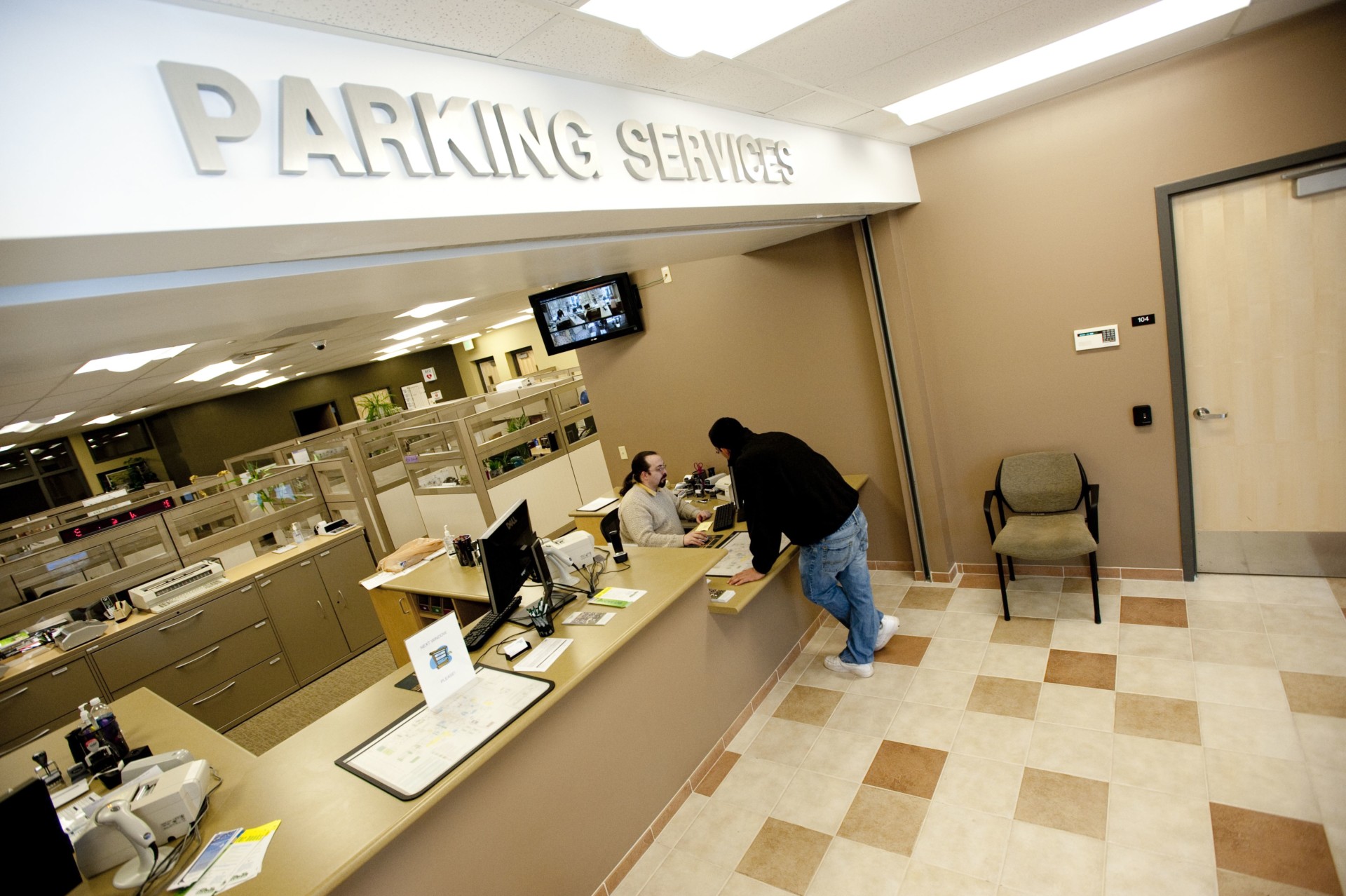
Parking permits for the 2018-19 academic and fiscal year go on sale July 15. New permits are required and enforced starting Aug. 15. Permit prices will increase 3 percent to cover increased operating costs and inflation.
Lower cost options and subsidy program
Parking Services is continuing to offer a multitude of parking permit choices, including several lower-cost options piloted over the last several years. This includes a lower-cost option for the Moby Lot, along with a low-fee Research Blvd Lot permit. In addition, days-of-the-week permits piloted last year will continue to be offered (Monday-Wednesday-Friday and Tuesday-Thursday) for students, faculty and staff who are not on campus daily.
The subsidy for employees earning less than $35,000 will continue: This program provides permits at half of the annual rate for employees, with the discount automatically taken at the time of purchase. The discount does not apply to monthly, daily, hourly or days-of-the-week permits, or the Moby or Research Blvd permits.
By state statute, parking must pay for itself at CSU. No tuition, fee or state money supports parking expenses, such as maintenance, operations, and garage construction. Permit and citation fees support all parking needs on campus.
For more information about permit options, visit Parking and Transportation Services permit page.
Parking permits, transportation benefits impacted by tax code changes
Recent changes in the IRS Tax Code signed by Congress in December impact the university.
The change effectively eliminated the ability of CSU to deduct on a pre-tax basis transportation benefits the university provides to employees. Pre-tax deductions offered to employees for parking and commuter transit expenditures are a transportation benefit. Because of these changes, the university can no longer offer the opportunity to purchase pre-tax parking permit and commuter transit expenditures.
Permit payments can continue to be deducted from a paycheck by the university but as a post-tax, not pre-tax deduction. For faculty and staff purchasing a permit this month through payroll deduction, the cost will be deducted over eight equal monthly payments.
With this federal tax change, employees who have parking permit costs deducted from their pay pre-tax will see the amount now deducted after-tax. This means employees must pay income taxes on their total pay before the cost of a permit is deducted from their account, which increases their taxable income in the amount of the permit fee.
The difference in federal taxes that the university will be required to withhold depends upon many factors related to each employee, including payroll income and tax withholding deductions.
Impacts of the current tax code as they relate to CSU are primarily limited to transportation and parking, as previously outlined. However, federal Tax Code also applies to university apparel in certain situations; more will be shared with the university regarding this when the impacts are determined.
Contact Parking and Transportation Services at 970-491-7041 for questions related to parking permits as well as how the change in tax code affects transportation programs and parking permits.
Parking permit revenue covers alternative transportation, Transfort options
In addition to paying for all operating costs, parking permit revenue funds pay for many other parking and transportation needs on campus.
Permit revenue funds:
- Construction on new parking garages and lots
- Garage and lot maintenance
- Transportation infrastructure such as the recent construction of a pedestrian and bike underpasses at Prospect Road
- Technology, such as the parking space counters, including the signs at the garages and the online feed of space availability
- Around the Horn, the free on-campus shuttle that provides about 1.7 million rides a year
- Emergency Ride Home program, which provides a free ride home via a local taxi or Zipcar to people who take alternative transportation to campus and need to leave for an emergency, guaranteeing that students and employees won’t be stranded if they choose to try alternative transportation
- All parking operations
In addition, employees and students can take advantage of additional parking permit options based on alternative transportation, such as reduced-cost 10-packs of daily permits, carpool permits, and electric vehicle permits. To offset employee and student needs for parking permits, the university’s $1.5 million investment in Transfort benefits, coupled with student fee investments, provides the opportunity for faculty, staff and students ride all Transfort routes for free, with a valid CSU ID. This includes MAX services. Funds for these services are covered by parking permit revenue.